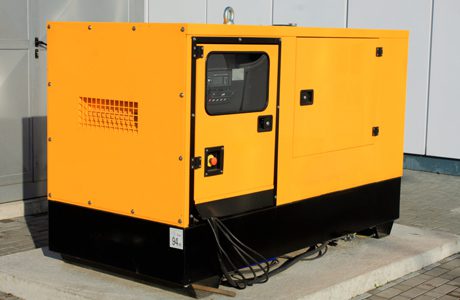
A new report challenges current perceptions on the use of diesel generators in STOR and related capacity market schemes.
Aimed at supporting utilities organisations already participating in, or exploring, demand side response (DSR) initiatives, it sets out the ‘fuel facts’ to support senior decision makers in getting the internal and external buy-in they need to maximise the possible returns from a commercial and CSR perspective.
“Coming at a time when there is growing criticism about the over-reliance of diesel powered generators in DSR, we thought it was necessary to support those businesses making positive steps to a more reliable, sustainable energy future by bringing balance to the argument,” says Brian Worrall, Corporate Affairs Director at Certas Energy – the company that has commissioned the report to make clear the need for National Grid to create the ‘virtual’ network that has come under widespread criticism.
“As power stations are closing and renewable energy sources remain unreliable we need a medium to long-term stop-gap that addresses security of supply and sustainability issues. The capacity market can make a difference but fuel type must be a consideration to encourage increased levels of participation and, importantly, address air quality concerns.”
With fuel type not currently an assessment parameter for capacity market participation, the report sets out why it should be a part of the criteria when tendering for capacity market schemes going forward. It also highlights the potential for next generation fuel technologies, such as paraffinic renewable diesels and innovative fuel additives, to address the UK’s ongoing air quality problem – particularly reducing NOx (nitrogen oxide) emissions and PM (particulate matter). With proven performance and a strong value proposition, this growing portfolio of solutions – including GTL (gas-to-liquid) formulations – are presenting more sustainable and cost-effective energy management strategies, owing to their ‘drop-in’ properties.
“We simply want to address some of the concerns around ‘diesel farms’,” adds Brian Worrall. “As without these generators, it’s likely that increasing UK electricity demands could not be met. Instead, we are calling for the industry to re-consider DSR and the benefits it can bring in meeting our immediate energy needs – particularly with the next generation of renewable diesels and fuel additives that are now available.
“With this report, we aim to provide the necessary resource to support energy managers in exploring the opportunities of committing on-site generation capabilities to The National Grid. We recognise, there is still much to be done to convince wider stakeholders of capacity market potential, and we hope that through having a voice we can bring more balance to the argument and play some part in shaping the future energy market.”
To download the report, please search ‘Certas Energy DSR’ or visit www.certasenergy.co.uk.







